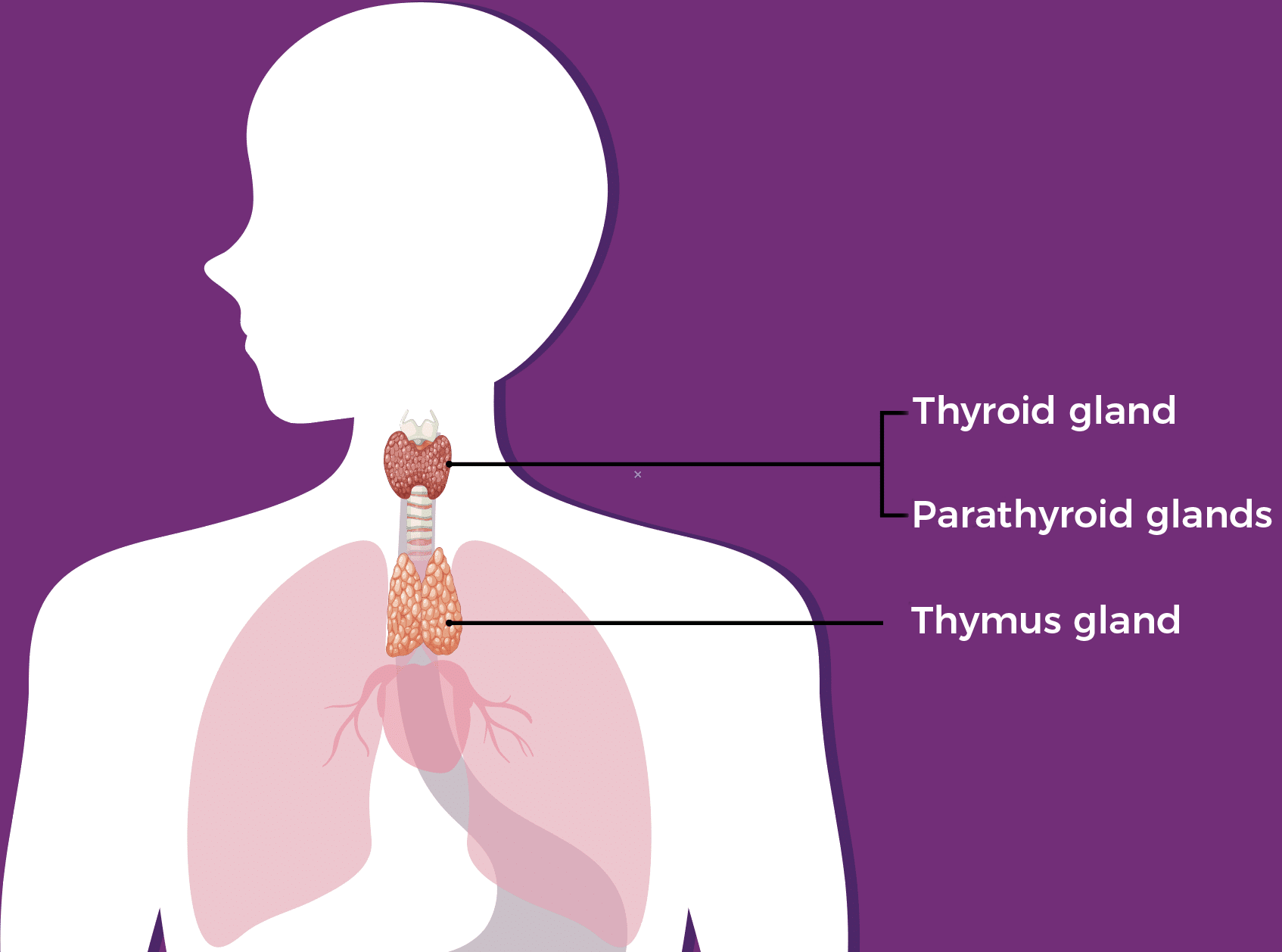Immune System Support
Role of the Thymus Gland
The thymus is an organ which helps maintain a healthy functioning immune system. From birth through young adulthood , it produces a variety of cells which protect the body against disease, inflammation, and genetic damage.

The activity of the thymus is highest in an individual’s teen and early adult life. As one nears the age of 40-45 years old, thymic function declines sharply as the thymus gland itself shrinks in size.
This process leads to an increased risk of chronic illness and accelerated aging. The CDC (Center for Disease Control) has found that approximately 80% of aged individuals suffering with at least one chronic disease is as a result of impaired immunity due to a poorly functioning thymus gland.
Impaired thymic function can lead to:
- Age-related immune dysfunction
- Chronic inflammatory disorders
- Reduced thyroid function
- Increased autoimmune diseases
- Decreased healthspan and lifespan
- Metabolic disorders (insulin resistance, obesity, diabetes)
- Increased mood disorders (anxiety, depression)
- Increased cardiovascular disease risk
Thymic Peptides
To improve immune function, it is worth considering therapies that restore the activity of the thymus gland. “Thymic” peptides have similar properties to the body’s own thymus hormone.
Thymagen (otherwise known as Thymogen, “Vilon”)
Thymagen is a synthetic dipeptide that is made of two amino acids. Its primary function is to restore the activity of the thymus gland – which plays a critical role in stimulating a healthy immune system.
When the immune system is functioning properly, it can:
- Prevent and/or treat a range of viral or bacterial illnesses
- Regulate inflammation from infectious or inflammatory diseases
- Improve the body’s regenerative processes
- Restore the cellular metabolism of the body
Clinical Uses:
- Immune support
- Anti-inflammatory
- Anti-Aging
- Improved healing, tissue repair
- Metabolic, thyroid support
Libido Support
According to current estimations, nearly 30 million men and women suffer from sexual dysfunction, which includes hypoactive sexual desire disorder (HSDD) in women and erectile dysfunction in men. Research has shown that as individuals reach 40-70 years old, this dysfunction can occur 2-3x as often as compared to adults who are under 40 years old.
Many therapies are directed to improve blood flow, vascular function, or nitric oxide to assist in the physical mechanics of sexual function. However, not all individuals experience this problem, instead having concerns with lack of desire, arousal, or impaired sexual experience.
Others may not respond to traditional methods of treatment for male erectile dysfunction, such as PDE-5 Inhibitors like sildenafil (“Viagra”) or tadalafil (“Cialis”).
PT-141 (Also known as Bremelanotide)
PT-141 was originally developed as a treatment for sexual dysfunction and gained attention for its potential effects on sexual arousal and desire. It was subsequently FDA approved for the treatment of generalized hypoactive sexual desire disorder in premenopausal women in 2019.
PT-141 works by stimulating the melanocortin receptors in the brain, which helps regulate sexual functions by releasing dopamine (associated with pleasure and reward).
Some studies have shown that PT-141 can be more effective (up to 80%) in people who don’t respond to either Viagra or Cialis.
Clinical studies have shown that PT-141 can help promote:
- Improved sexual desire, arousal in women
- Improved erectile response in men
Clinical Uses:
- Libido support
- Improvement in sexual interest, arousal
- Alternative treatment option for erectile dysfunction by targeting the neurological system (vs. the vascular system)




